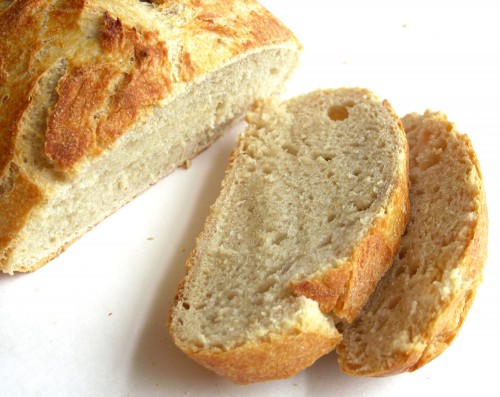
Agricultural News
Wheat Industry Pushes Back on 'Wheat Belly' Claims
Tue, 11 Sep 2012 15:02:59 CDT

Producers of the television show The View asked the National Association of Wheat Growers for a statement regarding claims by a guest on the show that changes in wheat hybrids over the last 50 years have made it less digestible for humans.
The View aired a segment Tuesday featuring Dr. Jeffrey Morrison, a certified nutritional expert. He agreed with claims by Dr. William Davis, a cardiologist, who has called the wheat produced today a "chronic poison." In his book "Wheat Belly," Davis claims modern wheat varieties bear little resemblance to their ancestors and that modern-day wheat is a causative factor in many chronic diseases.
On Tuesday's show, Morrison asserted that wheat has been bred over the last 50 years to enhance levels of the protein gliadin, to enhance shelf life and yield. Morrison said the increased levels of gliadin resulted in allergies and indigestibility.
The NAWG was asked to provide a two-sentence statement refuting Morrison's claims. Here is their response which was read during the show: "Humans have been growing and eating wheat for thousands of years, and the assertion that wheat's nutritional value has been changed is patently untrue.
"Eliminating wheat foods means eliminating an important source of healthful nutrients that are vital to our bodies functioning properly, like fiber, iron, B vitamins, antioxidants, and folic acid, which is especially important to women of childbearing age."
Morrison did not refute the NAWG statement, but said for the ten percent of consumers who had wheat sensitivities and wanted other options, spelt bread, Ezekiel bread, and gluten-free breads might make good choices.
Dr. Brett Carver, head of Oklahoma State University's wheat improvement team, has studied the "Wheat Belly" issue and said the research indicates that less than ten percent of the population has some sensitivity to wheat products, but that a large number of Americans have somehow come to believe that wheat gluten is bad or dangerous. He calls this misperception "glutenoia."
In an interview earlier this year, he told Radio Oklahoma Network Farm Director Ron Hays that, "This is the classic case where the truth has become stretched a little bit and now we cannot tell the difference between fact and fantasy."
Carver said that without any scientific evidence to back up their claims, sources such as Dr. Davis are saying that the way wheat has been bred over the last 50 years has produced a different kind of grain than our grandfathers produced. These sources are then laying the cause of the obesity and diabetes epidemics at the feet of current wheat producers.
Is today's wheat different from that which first debuted in Turkey and Russia and made its way to America?
"Sure," Carver said. "It looks a little different and that's what's being misinterpreted, too. You know we've got a shorter plant than we did 50 years ago, and that's a good thing because now we can better utilize fertilizer, the most expensive input we have, or one of the most expensive. Semi-dwarf wheat allows us to use those inputs more effectively.
"But those who don't understand that will look at the difference in the plants and say, 'Oh, well, you're producing a "Frankengrain" that's two feet shorter than what it was. It must be different. It must not be good for us.'"
While externals have changed through breeding programs, Carver said the grain itself shows very little change.
"It's really not that different. The protein composition, we know the protein amount hasn't changed in 15 years. There are those who think that the protein content has been increased with breeding. No it has not."
You can read and listen to the full interview with Dr. Carver by clicking here.
WebReadyTM Powered by WireReady® NSI
Top Agricultural News
More Headlines...




















